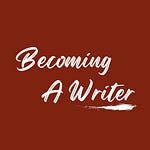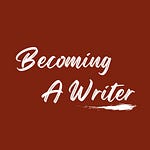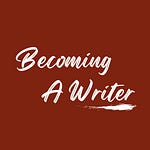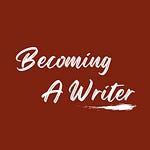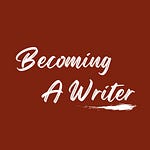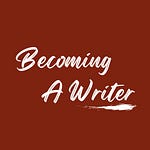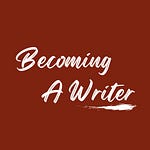Show Notes -
Episode Summary: In this episode, we explore a growing trend among content creators and how it may be affecting you as well. Have you noticed that many of your favorite YouTubers from pre-COVID days have become less active, retreating from the hustle of constant content creation? We're diving into why this is happening and what it means for creators and aspiring artists.
We discuss the concept of the Shadow Artist, a term coined by Julia Cameron in her influential book The Artist's Way. A Shadow Artist is someone who is closely linked to their art but is not fully pursuing it. Instead, they may find themselves in related but less fulfilling roles. We'll look at examples from the world of YouTube, featuring creators like Matt D'Avella and Nathaniel Drew, who have transitioned from active content creators to seeking deeper, more meaningful creative pursuits.
Key Takeaways:
Understanding the Shadow Artist: Learn how shadow careers can keep you close to your art without truly engaging in it. Discover how this concept applies to modern content creators and their struggles.
The Case of Matt D'Avella and Nathaniel Drew: Explore how these YouTubers faced creative dissatisfaction and their journey to reclaim their artistic freedom.
Personal Reflection: I share my own experience as a Shadow-Writer, grappling with the balance between creating content and pursuing genuine artistic expression.
Flipping the Script: Discover strategies to prioritize your true art over content creation. Learn how to focus your time and energy on what truly fulfills you, and how to use supplementary content to support, not overshadow, your core creative work.
Actionable Steps:
Reassess Your Creative Priorities: Reflect on whether your current activities align with your true artistic goals.
Create Art First: Focus the majority of your time and energy on creating your primary art, whether it's writing, filmmaking, painting, or any other form.
Supplementary Content: Use content creation as a tool to support your art, rather than allowing it to consume all your creative energy.
Evaluate Engagement and Fulfillment: Regularly assess whether your current creative practices are bringing you joy and satisfaction.
Resources Mentioned:
Transcript -
Hello, my writer friends! Rubina here. For our twenty-ninth conversation, we are going to talk about why creating content might be keeping you from being a writer.
Please tell me if this is just me or are you experiencing this as well.
The YouTubers I used to watch pre-COVID have gone MIA. They used to be pretty active, posting at least one video every seven to ten days, but in the last few years, they have slowly drifted away from YouTube's social setting and opted for the quieter space of their creative forest.
Of course, life changes, and so do priorities, but there's one common creative reason that I am aware they share.
It's that these Youtubers are done being pseudo-creatives. Let me explain with some examples.
A disclaimer before we move any further - I don't know them personally, and I am just sharing my thoughts based on the thoughts and feelings they shared through their videos and newsletter. So, I might be completely wrong here.
The YouTubers
Two video content creators are coming to my mind right now - Matt D'Avella and Nathaniel Drew.
Both are in the self-help realm - one practical, the other philosophical. Both are great storytellers. Both leave you with the 'get up and do something' attitude. And in recent years, both have been feeling creatively unfulfilled.
From what I understand, they wanted to be filmmakers—that is, use the medium of film to tell a story or share a thought. Having access to a platform like YouTube made it easier for them to practice their craft and hone their skills while showcasing their work to an audience.
But as is often the case with content creation and social media, they got tangled in the web of views, algorithms, and followers while trying to maintain their creative pursuits.
The same work and platform that gave them creative freedom was now slowly choking the life out of their creativity and desire to make good films.
They tried different things to spice things up - hiring a team to help them keep the constant flow of content creation going, they started a podcast, and they created and released courses.
But nothing worked out as they expected, as the core issue was still unresolved.
Thankfully, they dared to acknowledge their dissatisfaction and took a step back to figure out what went wrong and where.
Both of them, in their recent newsletters, mentioned that they are getting a grasp of making their way out through the algorithmic mud.
What I believe they are figuring out is that they weren't being the creatives they wanted to be when they started on YouTube. The years they spent on creating content for the platform, they got slapped with labels (like being a minimalist) that initially made them stand out from the crowd but, over time, started stifling their creativity. So even though they were releasing videos one after the other and to their standard quality, internally, they were feeling unfulfilled.
In a way, they became the shadow version of the artists they truly wanted to be.
The Shadow Artist
I learnt about the concept of a Shadow Artist from Julia Cameron's life-changing book, The Artist's Way.
A shadow artist is someone who is intimately connected to their art but is not able to fully pursue it. They often find themselves in a career related to their desired art but not the art itself.
Examples would be:
creatives who want to be writers but become editors, feeling it to be a safe and society-approved route.
creatives who loved painting as a child but as adults become art collectors because they were never pushed to pursue painting as a career.
or creatives who would often date, marry, or become friends with people who actively pursue the art they secretly long for.
Shadow artists (consciously or unconsciously) tend to choose a shadow career that is close enough to the desired art but not the art itself.
Let me give you a real-life, currently happening example so you'll get what I am saying -
If you are on Instagram or TikTok, I am sure you have come across accounts of aspiring actors and actresses. Initially created to show off their acting skills, they now tend to create thirst trap videos because that's what seems to get the most interaction and, in some instances, also pay the bills. These aspiring performers are now spending the majority of their time running on this endless hamster wheel, day in and day out, instead of giving more auditions for movies and shows.
It wasn't long before I realized that I, too, was struggling with the same issue. I was beating around the writing bush but wasn't actually engaging in the task that I deemed as true writing for me. I, too, was a Shadow-Writer.
I, The Shadow-Writer.
My choice of platforms was Medium and Substack. Both of them started as avenues for me to express my creativity. But very soon, the weekly posting of my essays began to drive me crazy.
Don't get me wrong - being a content creator did provide me with some valuable benefits. I learnt how to maintain a writing habit. I learnt about the art and craft of being a writer. I found reach to worldwide readers. And, most importantly, writing and sharing my words online gave me the belief and proof that I am a writer.
But I can't deny that, over time, creating content is eating away at my creativity.
Creating weekly content wasn't exciting me anymore. I felt I had to keep writing and keep posting; otherwise, I'd be a failure.
There is a delicate balance between wanting to write what you want, writing what the readers would like to read, and what the algorithm would prefer. In content creation, you can't help but have the scales tip towards the latter two.
It's even harder for me to complain because I am doing what I always wanted to do—writing. But I understood that I was being a shadow version of the writer I could be.
It took a significant drop in engagement on Medium early this year to make me realize that I was unhappy. This drop in engagement made me question the value of my efforts.
Now the question then is - if I am not happy with what I am doing online, and the engagement is not worth the effort, then why do it?
Solution
The solution I found for this problem is to flip the script.
I believe the majority of our time and energy should be spent creating our art. This could be our novel, our collection of essays, our nonfiction book that someone will find helpful, or our collection of poems. Creating what we actually want to create should come first.
From that foundation, we can create content that supplements our art. It could be sharing a snippet of our work-in-progress or sharing a tool or trick that's helping us in our writing.
If all our time and energy goes into creating content, with little to nothing left for creating art, then we have a problem. That is how you let content creation turn you into a shadow writer.
What are your thoughts on this? Is creating content keeping you away from writing your book? How do you think we can solve this problem? Feel free to share your thoughts and tips in the comment section on Substack and YouTube.
Well, that's it for today. Next time we meet, we'll talk about how publishing your first book means everything and nothing.
Until then, keep writing, my friend.
Send in your suggestions and questions here.
📚 My non-fiction book for writers -
Soul Writer vs. Social Writer - Find Out Which One Are You?, Why Is It Important, and Finding Your Sweet Spot.
Amazon US | Amazon UK | Amazon India
🏡 My homes on the internet -
Spotify | Apple Podcast | Amazon Music
YouTube | YouTube Music | Substack (podcast)
A Rubina’s Bojra Production
Directed By: Rubina Gauri Gomes
Produced By: Rubina Gauri Gomes, Books She Has Read, And Life Lessons She Has Learnt
Written By: Rubina Gauri Gomes
Host & Voice Talent: Rubina Gauri Gomes
Music by: Happy Lazy Loop by Serge Quadrado (At Adobe Stock)
Audio-Visual Edited By: Rubina Gauri Gomes
Marketed By: Rubina Gauri Gomes
Fueled By: Coffee ☕
Made With Love, For Fellow Writers And Creatives.🤍










